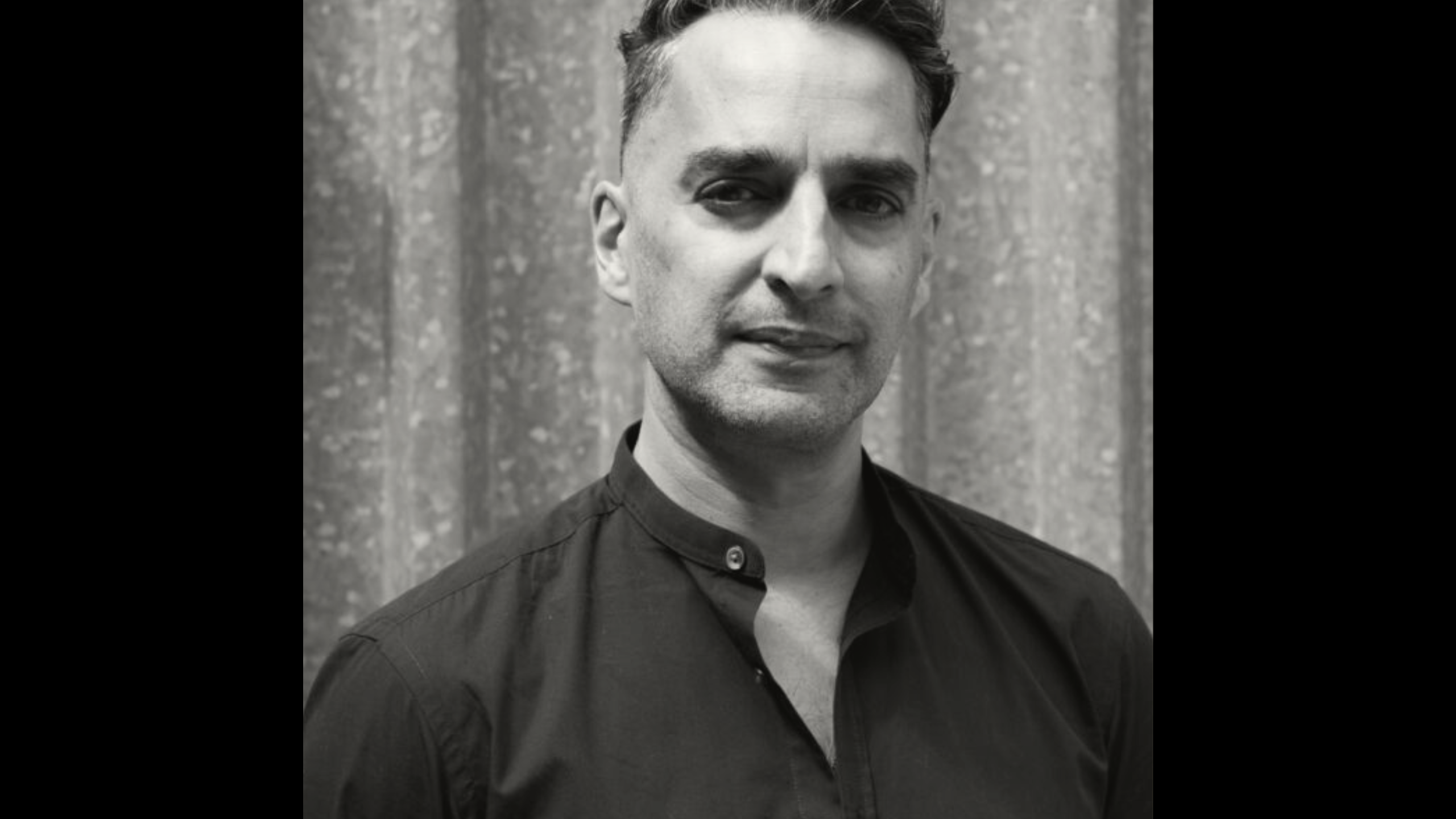"Journalism is not for journalists. It's for citizens, and we should have citizens in our minds at every point of what we do"

The speaker
Shirish Kulkarni is an award-winning investigative journalist. Shirish leads the Bureau Local on its Open Newsrooms, story clinics and Decolonising the News project. He is undertaking research on news storytelling through modular journalism with funding from the Clwstwr Creadigol.
Why journalism should be different
Shirish encouraged journalists to see their work as a service to their communities and to think much more deeply into the meaning of what they do. “Journalism is not for journalists but for citizens,” he said. “We have to have citizens in our minds at every point of what we do.” He said that news organisations should reach out to younger audiences and people of colour, be much more transparent about their editorial processes, and acknowledge more openly the things they don’t know.
Shirish explained why a diverse newsroom is much better equipped to cover the news. “There is racism in our newsrooms and those racist viewpoints have infected everything about our cause in society. Our discourse in journalism and politics often characterises immigrants as opportunistic and undeserving. Imagine how that kind of newsroom conversations make me and others like me feel. If people of colour were driving editorial decisions in newsrooms, all our discussions about immigration, inequality, education and crime would be entirely different. We need to address that with urgency."
Watch the video of Shirish’s talk
Seven takeaways from Shirish’s talk
News should help their readers understand the world. Shirish encouraged journalists to think deeply about what they do. Does their work reinforce prevailing attitudes and structures or does it allow audiences to have a more comprehensive understanding of the issue at hand? He offered as an example the coverage of individual crimes: “Does it make things better or does it drive a discourse that makes it impossible to have evidence-based discussions about rehabilitation versus punishment in our society?”
Citizens want context, not just breaking news. “Audiences are crying out for context,” Shirish said. "And yet news outlets often prioritise breaking news to the detriment of context and understanding. News organisations are so focused on the habit of constantly updating the top line that the underlying point quickly becomes really difficult to unpick as a viewer if you are not watching the news every hour or even every day,” he said. Our processes and priorities often makes us ignore structural processes like global warming. “There’s not a big single day event to put in the diary when it comes to climate change,” Shirish said. “The earth doesn’t put out a press release every month, and the constant question from editors is what’s the peg for the story, why we should be doing this now. For some bizarre reason, ‘we are all going to die in a ball of fire’ doesn’t seem to be a good enough answer enough of the time.”
Journalism should provide a space for citizens to exercise agency. “News isn’t just happening to us as passive victims of the news. We are also citizens of our communities and have our own power. We need to offer in our coverage a way for people to feel like they are involved in the world and can make a difference,” Shirish said, echoing some of the principles of solutions journalism. He suggested learning from game designers and theatre professionals who drive engagement by tapping into audiences’ curiosity.
Tone should be accessible and not defined by past habits. Shirish described workshops where a group of young people of colour watched a BBC News bulletin together and were quickly turned off by the content and the tone. “We need to find a different way of talking with people,” he said.
The news media should listen to different perspectives. Audiences can’t be expected to trust news organisations who don’t invest in understanding them, Shirish said. He gave an example from the UK: “Less than half of our national broadcasters have a correspondent based in Wales. Even fewer national newspapers have one. What that says out loud is they don’t think Wales is important. And yet, incomprehensibly, those same organisations still expect people in Wales to trust them and engage with them. That’s not how relationships work.”
Reporters should be transparent about their reporting. Audiences should know exactly how and why journalists are reporting on a particular story. Gaps in reporting knowledge should be declared openly to avoid errors and suspicions among readers. “We are not experts,” Shirish said. “Lots of us are generalists. Sometimes we have to say ‘we don’t know’ rather than saying something that we don’t know.”
As journalists, we should never forget human beings are hardwired for stories. “Across cultures, stories are used as virtual reality simulators for life,” Shirish said. “Stories teach us how to navigate the world, prepare us for difficulties and ultimately tell us how to live more fulfilling lives. Isn’t this what journalism is about?”
The bottom line
Shirish encouraged journalists to review some of their practices and reach out to younger audiences and people of colour. He argued that journalists should add much more context to their breaking news stories and pay more attention to slow structural processes such as climate change. News organisations should report the news in a way that reminds audiences of their own agency. They should drop the voice from nowhere and use a more conversational tone. Only truly diverse newsrooms can achieve these goals.
If you want to know more…
- Read Shirish’s manifesto for change in journalism.
- Watch this recent seminar on decolonising news.
- Watch this lecture by Denise Balkissoon on the limits of objectivity.
- Read our recent report on how newsrooms are tackling diversity and remote working.







